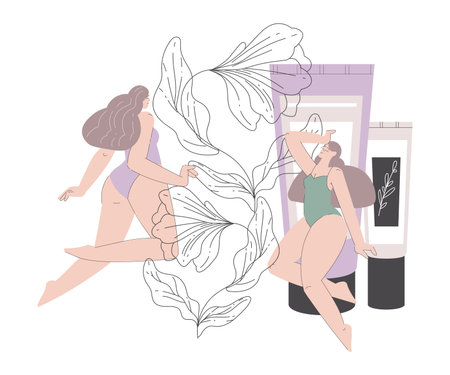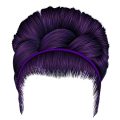Introduction to British Spa Culture
When exploring the world of exfoliating scrubs and bodycare treatments in Britain, it’s essential to first understand the unique ethos that underpins British spa culture. Rooted in a rich heritage dating back to Roman baths and Victorian bathhouses, the British approach to spa treatments is defined by a sense of calm, understated luxury, and deep respect for tradition. Relaxation is at the heart of every experience, with a strong focus on taking time out from the hustle and bustle of daily life. Local spas often prioritise natural ingredients—think sea salts from Cornish coasts, Scottish heather, or Cotswolds honey—reflecting a national appreciation for the countryside and its bounty. This cultural embrace of nature pairs perfectly with an emphasis on gentle yet effective bodycare, making British spa rituals both soothing and rooted in quality. Whether nestled in a rural manor house or a chic city retreat, British spas invite you to slow down, unwind, and reconnect with yourself through time-honoured practices that blend relaxation, heritage, and holistic wellbeing.
2. The Role of Exfoliating Scrubs in Local Treatments
Exfoliating scrubs are a cornerstone of British spa bodycare, rooted in the pursuit of healthy, radiant skin through gentle renewal. In local treatments, scrubs are carefully selected to suit the typical British climate—often cool and damp—which can leave the skin feeling dull or congested. The primary goal is to slough away dead cells while respecting the natural balance of the skin barrier, an approach that reflects the British emphasis on subtlety and comfort.
Formulations: Ingredients with a Purpose
British spas often favour scrubs formulated with naturally derived ingredients, prioritising sustainability and skin tolerance. Common exfoliants include finely milled sea salt, sugar, ground oats, and biodegradable jojoba beads. These ingredients are typically blended with nourishing oils such as sweet almond, grapeseed, or British-grown rapeseed oil. Essential oils like lavender or chamomile are frequently added for their calming effects and quintessentially British scent profiles.
| Exfoliant Type | Main Benefits | Typical Texture | Skin Suitability |
|---|---|---|---|
| Sea Salt | Mineral-rich, invigorating | Coarse to medium grain | Normal to oily skin |
| Sugar | Hydrating, gentle dissolving action | Smooth granules | All skin types, especially sensitive |
| Oatmeal | Soothing, anti-inflammatory | Creamy-fine powder | Sensitive or dry skin |
| Jojoba Beads | Eco-friendly, non-abrasive | Soft round spheres | Mature or delicate skin |
The Texture Experience: British Preferences Unpacked
The tactile sensation of exfoliation is crucial in the spa experience. British treatments lean towards scrubs with a refined texture—never too harsh—to avoid microtears and preserve the integrity of the skin. Therapists are trained to tailor pressure and technique according to individual needs, ensuring a relaxing session rather than an aggressive polish.
The Emphasis on Gentle Exfoliation: Why It Matters Locally
A defining characteristic of British spa exfoliation is its mild approach. With widespread awareness of over-exfoliation risks (such as redness and increased sensitivity), local therapists advocate for moderate use—usually once a week for most clients. This philosophy aligns with broader UK trends towards minimalist skincare and long-term health over fleeting results. By focusing on gentle exfoliation, British spas create a soothing ritual that fits seamlessly into holistic self-care routines while supporting the skin’s natural defences.

3. Typical Ingredients in British Exfoliating Scrubs
When you visit a spa in the UK or pick up a locally made exfoliating scrub, you’ll often find a blend of time-honoured ingredients that reflect Britain’s rich natural heritage. These components aren’t just chosen for their provenance; they each bring unique benefits to your skin, making them staples in British bodycare routines.
Sea Salt: The Coastal Classic
British spas frequently use sea salt harvested from areas like Cornwall or Anglesey. Rich in minerals such as magnesium and potassium, sea salt works as an effective physical exfoliant, helping to slough away dead skin cells and stimulate circulation. Its grainy texture ensures a thorough cleanse, leaving your skin feeling refreshed and invigorated.
Oat: The Gentle Soother
Oats have long been a favourite in British skincare, appreciated for their gentle yet effective exfoliating properties. Finely ground oats help remove impurities without causing irritation, making them ideal for sensitive skin types. Oats also contain beta-glucan, which supports the skin’s barrier function and helps maintain moisture, leaving your complexion soft and calm.
Honey: Nature’s Humectant
Locally sourced honey is another beloved ingredient in British scrubs. Renowned for its antibacterial properties and its ability to lock in moisture, honey not only soothes but also nourishes the skin during exfoliation. Its sticky texture can help bind other ingredients together while imparting a subtle glow to your skin post-treatment.
Native Botanicals: A Touch of the Countryside
British scrub formulations often feature native botanicals such as lavender, chamomile, and rosehip. These natural extracts are chosen for their calming aromas and anti-inflammatory effects. Lavender helps relax both mind and body, chamomile reduces redness, and rosehip delivers antioxidants that protect against environmental stressors.
How These Ingredients Benefit Your Skin
Together, these quintessentially British ingredients provide a balanced approach to exfoliation: sea salt offers deep cleansing, oats deliver soothing care, honey boosts hydration, and botanicals offer targeted relief for stressed or sensitive skin. By choosing scrubs with these elements at a local spa, you’re not only indulging in self-care but also benefiting from generations of British skincare wisdom rooted in nature.
4. What to Expect During a British Spa Body Exfoliation
Stepping into a British spa for a body exfoliation treatment is both a restorative and quintessentially local experience. Here’s a step-by-step guide that demystifies the process, highlights unique elements of British spa culture, and prepares you for every detail from arrival to post-treatment rituals.
Arrival and Welcome
Upon entering a UK spa, youll be greeted by friendly staff who prioritise discretion and comfort. You’ll typically be asked to fill in a brief health questionnaire and will be shown to a plush changing area. Donning a robe and slippers is customary; spas provide these along with secure lockers for your belongings.
Spa Etiquette: The British Way
| Do | Don’t |
|---|---|
| Arrive at least 15 minutes early | Use mobile phones in quiet areas |
| Speak softly in communal spaces | Wear jewellery during treatments |
| Inform therapists of any allergies or sensitivities | Skip the post-treatment tea ritual |
The Ambience: Calm, Elegant, and Distinctly British
The setting is typically serene, with calming music, subtle herbal scents (often lavender or chamomile), and understated décor. Many British spas embrace local heritage—think period features, Cotswold stone walls, or views over rolling countryside.
The Treatment: Step-by-Step Experience
- Consultation: Your therapist discusses your skin type and preferences, recommending an exfoliant (sea salt scrubs are popular for their mineral content).
- Preparation: Youll lie on a heated massage bed, often draped with crisp white linens. Modesty towels are used throughout.
- Application: The exfoliating scrub is applied with rhythmic strokes, focusing on areas prone to roughness like elbows and knees. Techniques are gentle yet effective—abrasion without irritation is key in UK spas.
- Cleansing: After thorough exfoliation, the scrub is removed with warm towels or under a Vichy shower if available.
- Hydration: A nourishing moisturiser or body oil is massaged in to seal hydration and leave skin supple.
Post-Treatment Rituals: The British Finish
A hallmark of British spa culture is the calm transition back to reality. After your treatment, you’ll be guided to a relaxation lounge where herbal teas (like peppermint or elderflower) are served. Light snacks such as oat biscuits may accompany your tea—a nod to classic British hospitality.
Key Takeaways for First-Time Visitors
- Modesty and respect for personal space are paramount.
- Treatments balance efficacy with gentleness—no harsh abrasives.
- The spa journey is unrushed; guests are encouraged to savour every moment.
- The post-treatment tea ritual is as important as the treatment itself.
This thoughtful approach ensures that each visit leaves you feeling relaxed, cared for, and thoroughly pampered in true British style.
5. Aftercare and At-Home Recommendations
To prolong the radiant, refreshed feeling you experience after a British spa exfoliating scrub, aftercare is crucial. British spa therapists often provide tailored advice to help you maintain those silky-smooth results at home, blending both science-backed product recommendations and cherished local self-care rituals.
Spotlighting British Skincare Brands
For continued exfoliation and nourishment, many therapists recommend homegrown British skincare brands renowned for their gentle yet effective formulas. Brands like Elemis, Neal’s Yard Remedies, and REN Clean Skincare offer body scrubs infused with botanicals native to the UK, such as elderflower, sea buckthorn, and rosehip. These ingredients are celebrated for their soothing properties and ability to support skin barrier recovery post-treatment.
The Importance of Gentle Exfoliation
Experts advise limiting at-home exfoliation to once or twice a week using a mild scrub to avoid over-exfoliating—especially important in the UK’s often damp, cool climate which can exacerbate sensitivity. Look for products that combine natural exfoliants like oat flour or finely milled salt with nourishing oils (such as borage or evening primrose) to gently slough away dead skin cells while locking in moisture.
Cultural Self-Care Habits
British self-care culture places emphasis on ritual and relaxation. Post-scrub, it’s customary to follow up with a rich moisturiser or body oil—often incorporating classic scents like lavender or chamomile—to seal in hydration and soothe any potential irritation. Weekly warm baths with mineral-rich Epsom salts are another beloved tradition, supporting detoxification and muscle relaxation while enhancing your skin’s softness.
Mindful Maintenance Between Spa Visits
Between spa appointments, protect your freshly exfoliated skin by wearing loose, breathable clothing and avoiding harsh soaps or very hot showers. Many locals swear by a simple cup of herbal tea after a home treatment session; blends featuring nettle or peppermint are favourites for their calming properties and links to traditional British wellness practices.
By incorporating these culturally attuned habits and products into your routine, you’ll not only extend the benefits of your professional exfoliating scrub but also embrace the essence of British spa culture in your daily self-care.
6. Key Benefits and Considerations
Embracing exfoliating scrubs as part of your bodycare routine in the UK offers a host of benefits rooted in both tradition and modern science. Regular exfoliation gently removes dead skin cells, unveiling softer, more radiant skin—a hallmark of many British spa experiences. This process not only improves skin texture but can also help prevent ingrown hairs and enhance the absorption of moisturisers, making your daily skincare products work more effectively.
Main Advantages of Regular Exfoliation
- Smoother Skin Texture: Physical scrubs help to buff away rough patches caused by the unpredictable British weather, especially during colder months when dryness is common.
- Improved Circulation: The massaging action of exfoliating scrubs stimulates blood flow, promoting a healthy glow often associated with post-spa treatments.
- Enhanced Product Absorption: By clearing away debris and dead cells, your serums and lotions penetrate deeper for better hydration and nourishment.
Frequency & Skin Type Tips
- Normal to Oily Skin: Exfoliate 1-2 times per week using a gentle scrub suitable for your skin type. Over-exfoliation can cause irritation, so moderation is key.
- Sensitive or Dry Skin: Opt for milder formulas with soothing ingredients like oatmeal or chamomile, and reduce frequency to once every fortnight. Always follow up with a rich moisturiser.
Cultural Considerations
In British spas, therapists are trained to tailor treatments based on individual needs and local climate factors. If you’re unsure about which products suit you best, don’t hesitate to consult a therapist or aesthetician—professional guidance is always valued in UK spa culture.
When to Seek Professional Advice
If you experience persistent redness, sensitivity, or breakouts after exfoliating, it’s wise to book a session with a qualified skincare professional. They can recommend alternative approaches or bespoke treatments that align with both your skin’s requirements and the high standards of British spa care.
By understanding these benefits and considerations, you’ll be well-equipped to make the most of exfoliating scrubs—whether indulging at home or visiting a local British spa.


